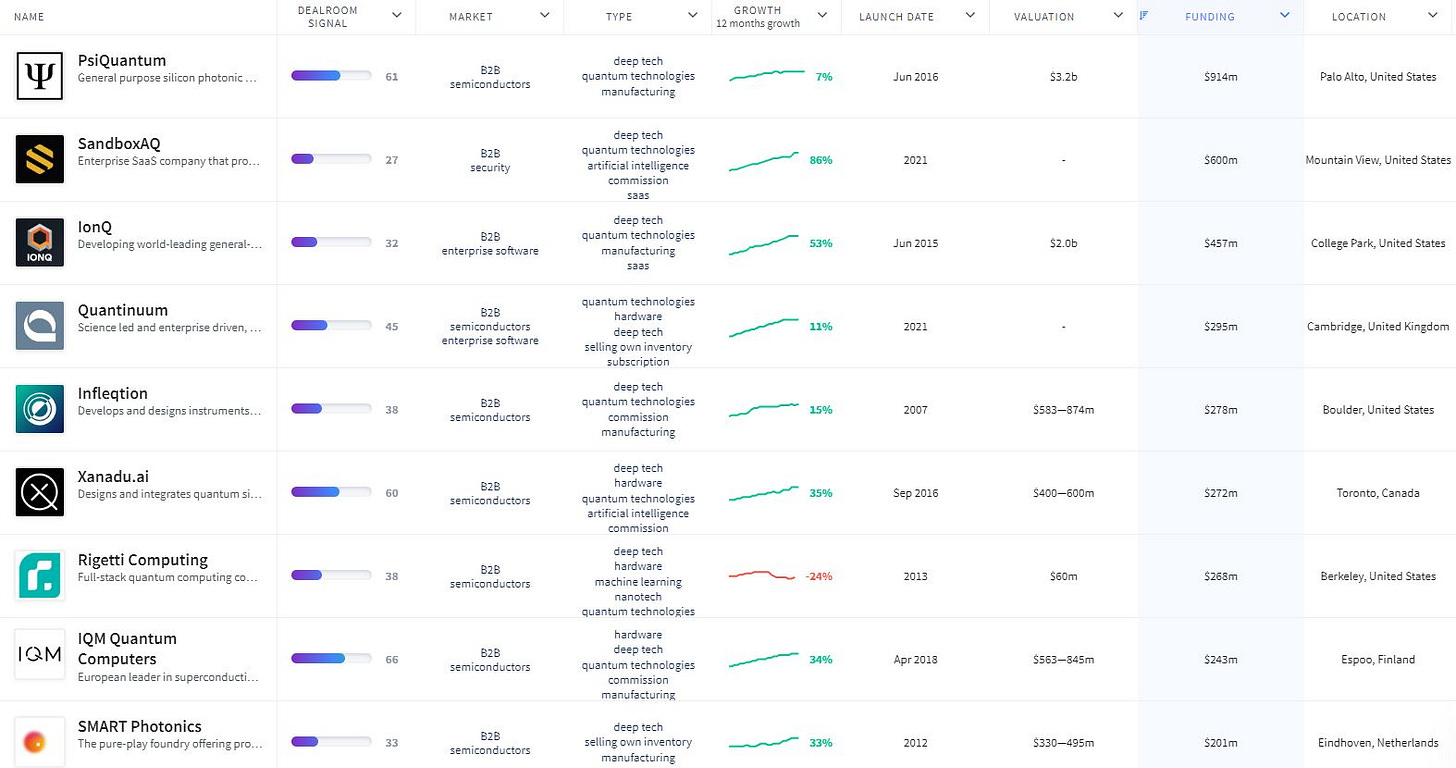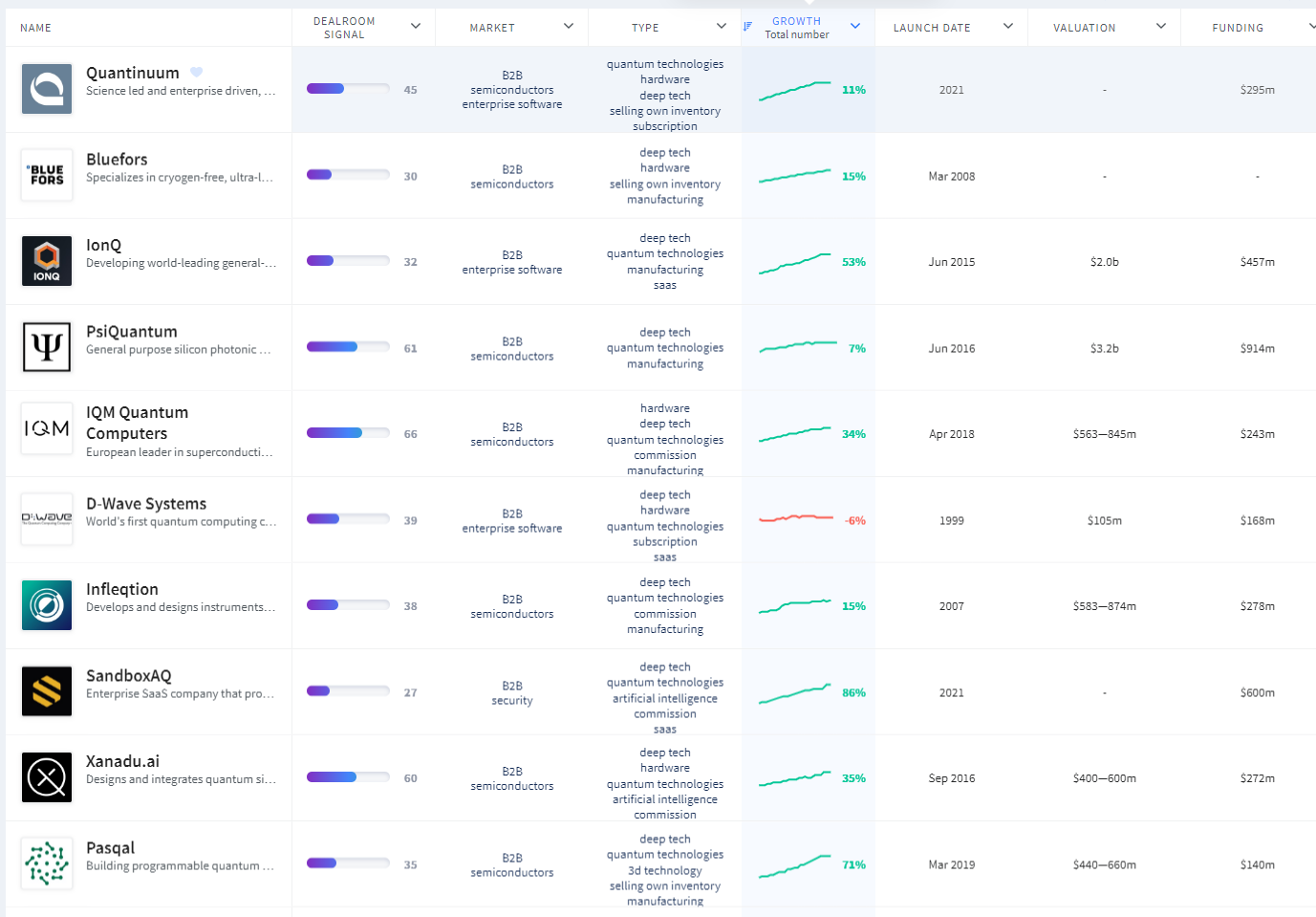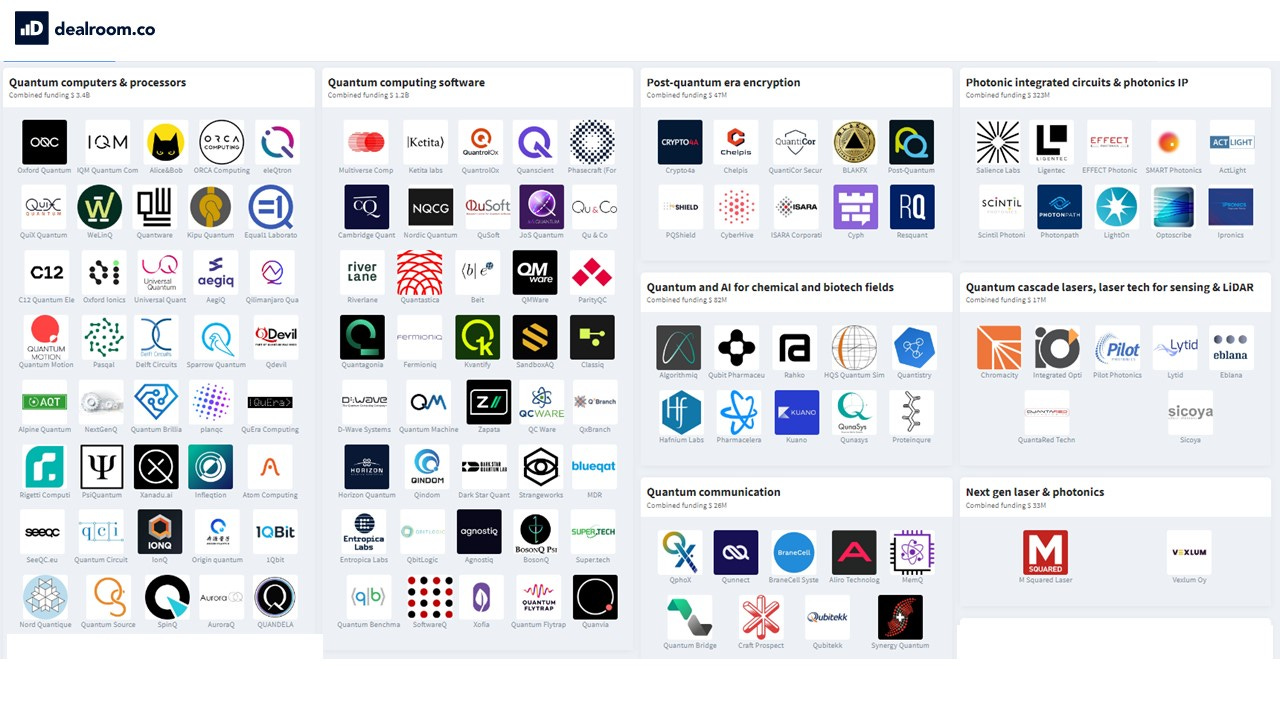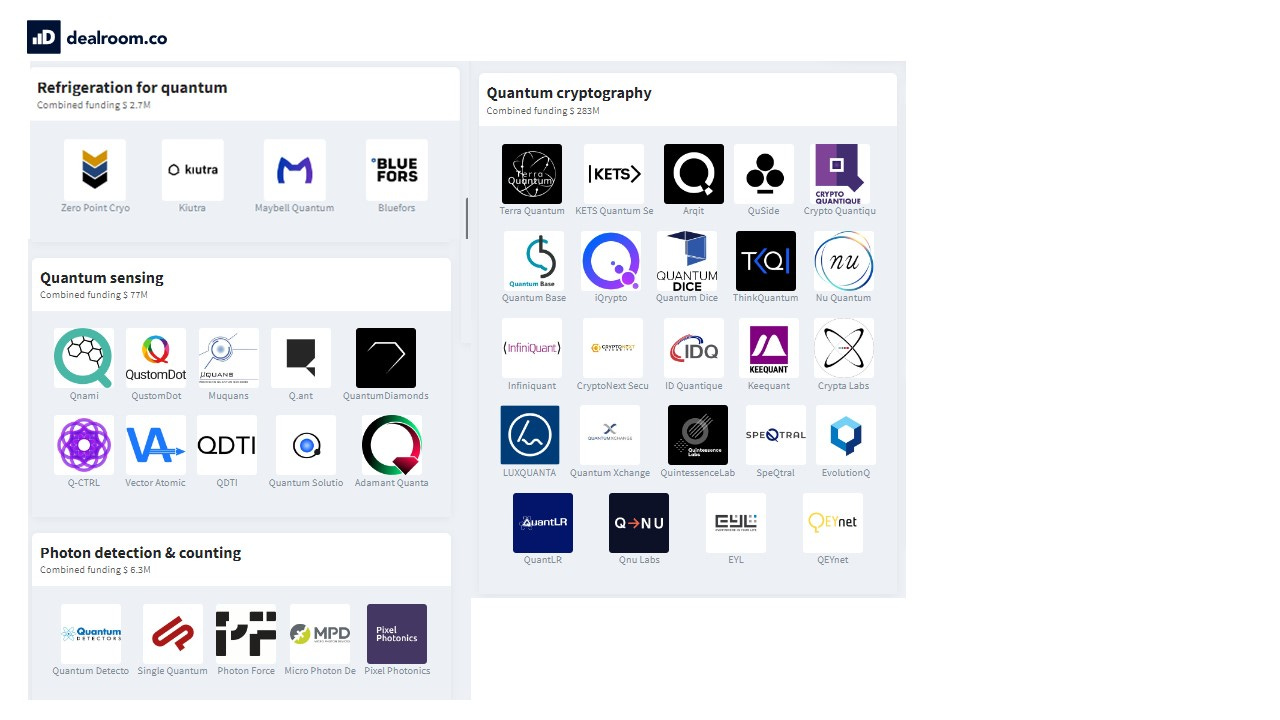Quantum Computing space in 2023
The current landscape of quantum computing, particularly in 2023, reveals a dynamic and rapidly evolving field, with significant progress in both industrial applications and algorithm development
Quantum Computing in Industry
Growing Market and Key Players: The quantum computing industry is poised for growth, with platforms exceeding 1,000 qubits expected in the coming years. Major players like IBM, Amazon, and Microsoft are heavily investing in this technology, focusing on aspects like qubit count, connectivity, error rates, and operating temperatures.
Transition to Industrial R&D: Quantum computing is transitioning from university labs to industrial R&D facilities, indicating a maturation of the technology and its readiness for practical applications.
Practical Applications Over Hardware Announcements: 2023 is witnessing a shift in quantum computing from a focus on hardware milestones to practical applications and improvements in chip communication and noise reduction.
Industrial Applications of Quantum Computing
Artificial Intelligence and Machine Learning: Quantum computing enhances AI and ML, offering faster and more accurate processing for labor-intensive tasks that traditional computers struggle with.
Drug Development: Quantum computing accelerates and reduces costs in drug development, potentially replacing laboratory tests with computer simulations.
Computational Chemistry: This technology advances computational chemistry, aiding in molecular mapping and benefiting the pharmaceutical sector.
Cybersecurity and Cryptography: Quantum computing strengthens cybersecurity through advanced encryption techniques and machine learning algorithms to counter threats.
Cloud Computing: Integration of quantum computing with cloud services enhances data processing and performance agility across industries.
Financial Automation: Quantum computing aids in identifying high-return, low-risk investment opportunities, enhancing the quality and efficiency of financial calculations.
Fraud Detection: In sectors like healthcare and banking, quantum computing improves data modeling and fraud detection efficiency.
Weather Forecasting: Quantum computing provides faster and more efficient methods for processing large datasets in meteorology and weather prediction.
Traffic Optimization: It aids marketing firms in data extraction and pattern analysis for targeted advertising and audience engagement.
Logistics Optimization: Quantum computing enhances supply-chain management through better data analysis and performance modeling.
Algorithm Development for Quantum Computing
Modular Quantum Computing: IBM’s Heron project represents a shift towards modular quantum computing, where multiple processors are connected to scale up quantum computing capabilities significantly.
Moving Beyond NISQ: The industry is gradually moving away from the "noisy intermediate-scale quantum" (NISQ) paradigm towards large-scale, error-corrected quantum computers.
Error Correction Efforts: Companies like Google Quantum AI and Quantinuum are developing error-correcting qubits that outperform physical qubits. IBM is exploring ways to mitigate error-inducing noise, similar to noise-canceling technology.
Software Development Focus: There's an increasing focus on software development for quantum computing. Programming tools are being developed to support more flexible computation routines.
Hybrid Quantum Computing: Algorithmiq is working on hybrid quantum computing, combining quantum computations with classical algorithms, an approach seen as the future of the field.
Startup Landscape by Dealroom.co
Funding of startups focused on quantum computing more than doubled to $1.6 billion in 2021 from 2020 and dropped slightly to $1.3B in 2022. 2023 is set to reach new heights, with almost $800M raised in less than 2 months. Most of the funding has been directed towards quantum computers & processors, quantum computing software and quantum cryptography. More than 2/3 of the startups have been started in the last 5 years, signalling strong potential for growth of the sector.
Corporates are also increasing their activity in the quantum space. 70% of business leaders are using and developing real-life use cases for quantum computing and 91% are investing or planning to invest in quantum computing, according to a recent report by VCs OpenOcean and Lakestar, and startup IQM quantum computers.
From the government side, 17 countries have invested in nationals program of quantum technology research and development with an estimated spending of over $30B. China is leading followed by the EU. More than 150 countries still have no dedicated quantum program, risking a large quantum divide.
A funding ranking for first startups
The growth in last 12 months is impressive
A landscapeof startups divided by Quantum sectors
Summary
Quantum computing in 2023 is witnessing significant growth in industrial applications across various sectors, with a shift from hardware development to practical applications and algorithm improvements. This progress, particularly in machine learning, drug development, computational chemistry, and cybersecurity, is set to transform multiple industries, while advancements in algorithms and modular computing are pushing the boundaries of what quantum computing can achieve.









